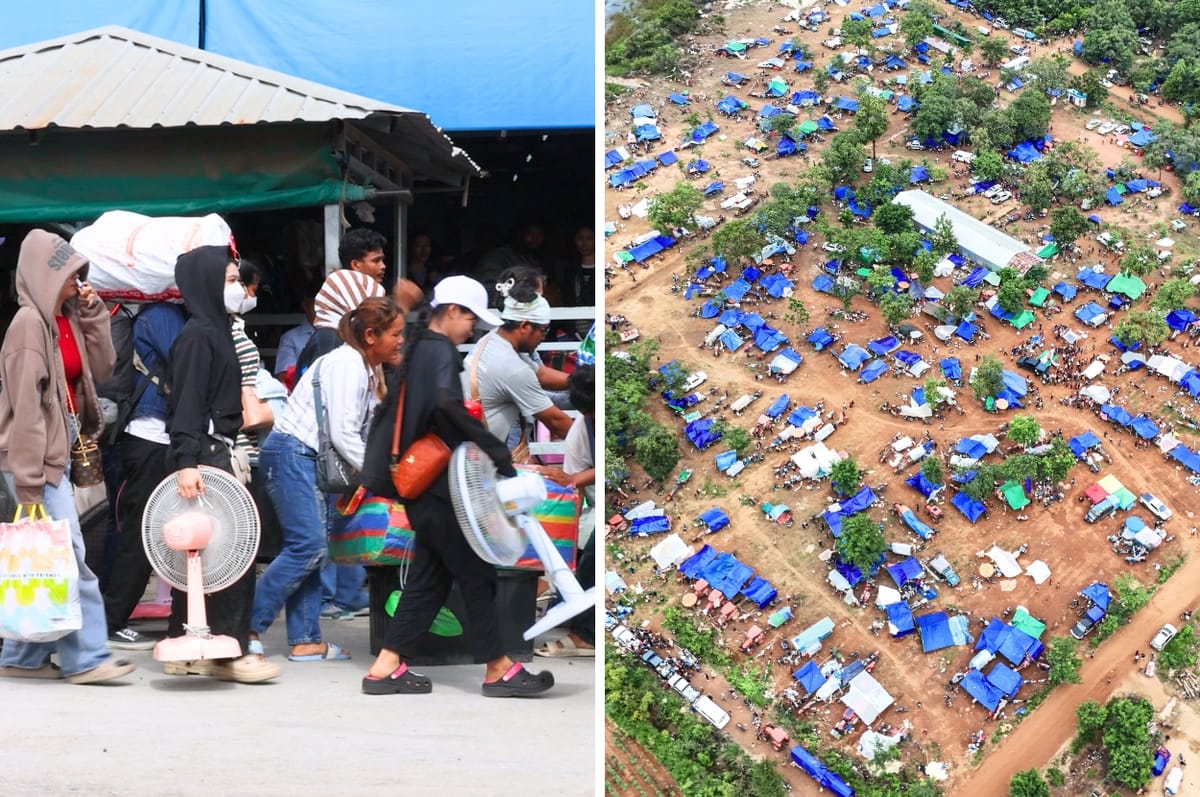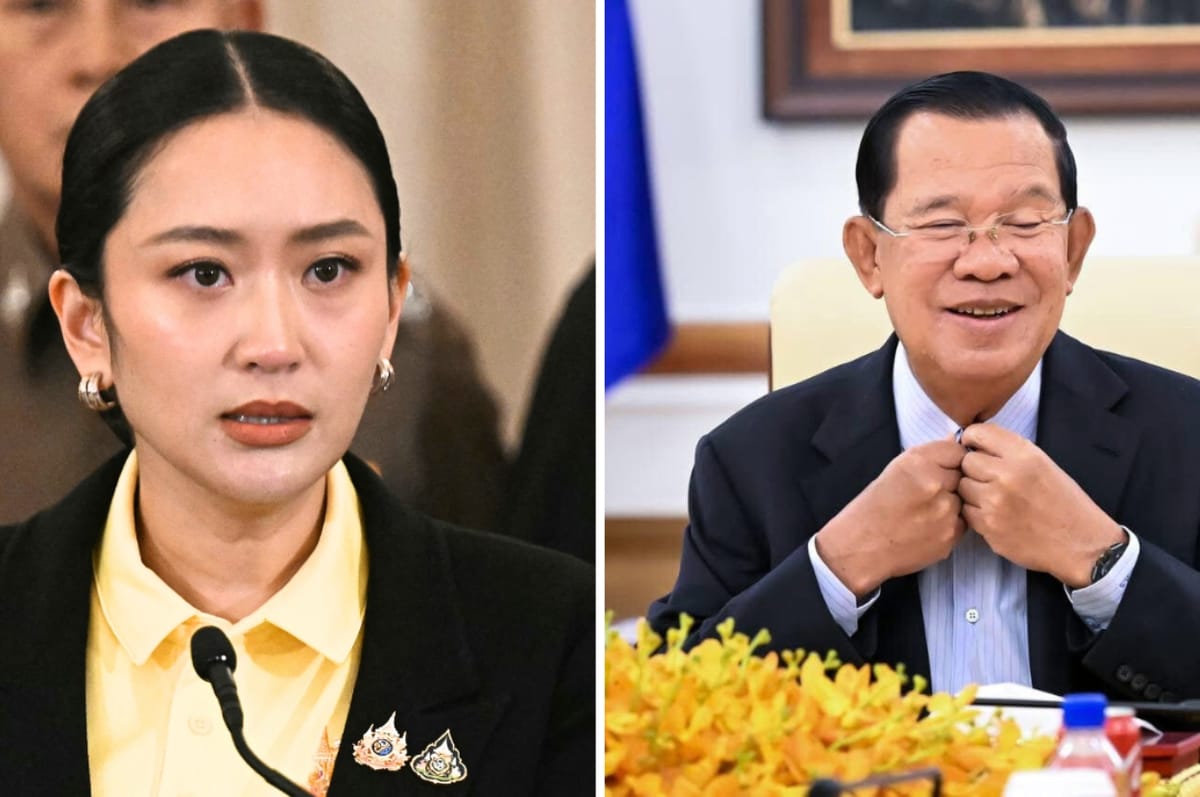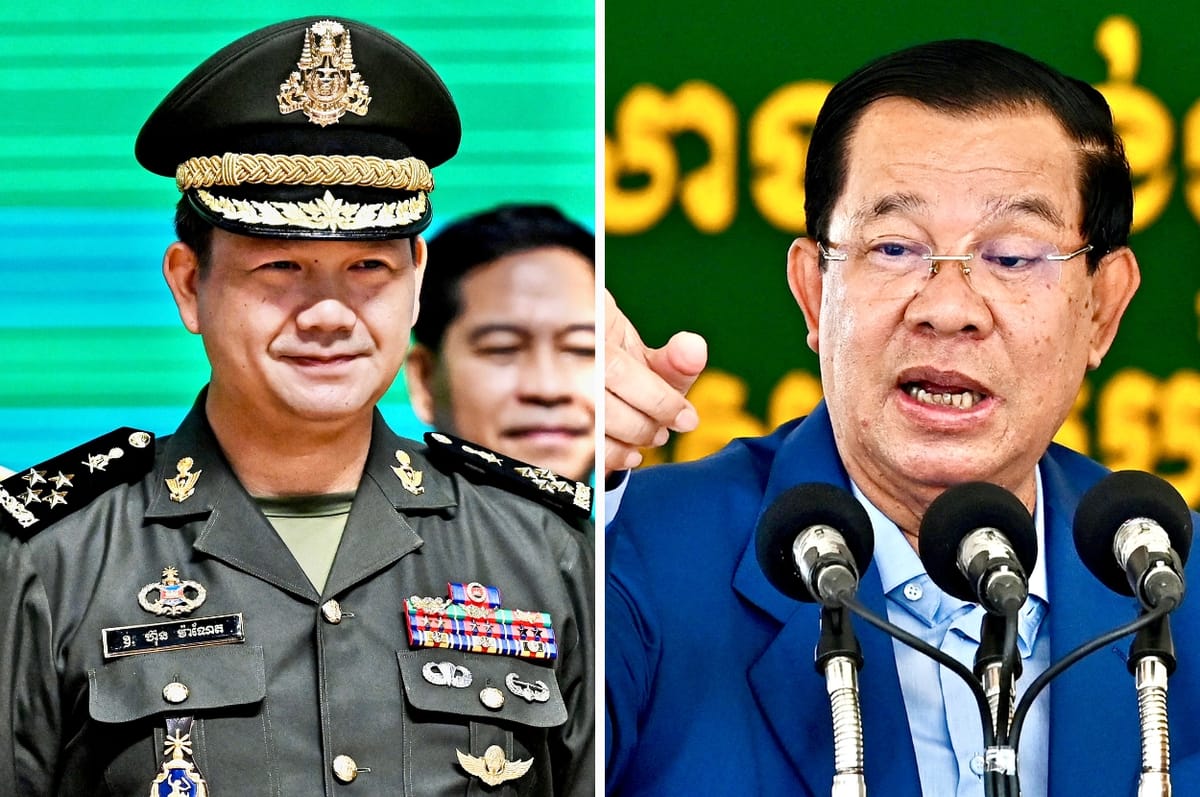Thailand And Cambodia Have Agreed To A Ceasefire After Days Of Fighting At Their Border
Recent tension flared when Cambodian and Thai soldiers clashed for 10 minutes at the border in May, with one Cambodian soldier killed.

Thailand and Cambodia have been fighting for days at their border and finally agreed to a ceasefire after 38 people were killed and more than 300,000 others were forced to flee their homes
Here’s what’s going on.
How Did It Start?
It all started in colonial times in 1907 after France signed a treaty with Siam — which is now Thailand — to define the border between Siam and French Indochina, which would become Cambodia, Vietnam and Laos.
After Cambodia became independent from France in 1954, the International Court of Justice ruled in 1962 that Preah Vihear Temple, a key temple on the border, belongs to Cambodia.
However, the ICJ ruling didn’t clearly define the areas surrounding the temple, which has led to ongoing conflict between Thailand and Cambodia over their border regions
In 2008, Cambodia nominated the Preah Vihear temple as a UNESCO World Heritage Site, triggering tensions again.
The two countries fought and exchanged fire over the course of four years from 2008 to 2011, with many soldiers and civilians killed on both sides.
Finally, in December 2011, after diplomatic interventions, both countries agreed to withdraw their troops from the disputed area.
However, tensions remained and clashes still broke out from time to time.
How Did The Latest Flare Up Start?
Now on May 28, tensions flared again when Cambodian and Thai soldiers at the border clashed for 10 minutes, with one Cambodian soldier killed
Both sides accused each other of being the aggressor, and talks to de-escalate failed, with Thailand closing a checkpoint over national security.
What Does Thailand's Prime Minister Being Suspended Have To Do With This?
Thailand's prime minister Paetongtarn Shinawatra then arranged to have an informal conversation with Cambodia's former prime minister Hun Sen, who is a friend of her father and former Thai prime minister Thaksin Shinawatra.
Although the call was supposed to be unofficial with both governments not keeping records, Hun Sen recorded the entire conversation reportedly without Paetongtarn's knowledge.
On June 18, Hun Sen released the phone call on his Facebook page, causing a huge scandal.
In the phone call, Paetongtarn was heard calling Hun Sen “uncle” and telling him not to listen to "the other side" in Thailand, referring to a prominent Thai military commander who she said “just wants to look good”.
Paetongtarn's submissive tone and criticism of the military commander was seen as deeply embarrassing for the Thai government, especially considering the military plays a powerful role in politics in Thailand, and led to her being suspended on July 1.
What's Happened Now?
Then on July 23, a Thai soldier stepped on a landmine along the border, leading him to lose his leg and four other Thai soldiers to be injured.
Thai authorities said the landmines were newly laid and said they were taking the case to the UN because Cambodia is a signatory on the Mine Ban Treaty to eliminate mines around the world.
The incident led Thailand to close its northeastern border crossings with Cambodia, withdraw its ambassador and expel the Cambodian ambassador.
In response, Cambodia downgraded diplomatic relations with Thailand to their lowest level and recalled all Cambodian staff from its embassy in Bangkok.
A day later, on July 24, armed fighting broke out near another temple very close to the border with Cambodia, according to Al Jazeera.
The fighting spread to multiple border locations, as both sides traded artillery and rocket fire, with Thailand launching airstrikes over several days.
The fighting killed at least 38 people, mostly civilians, and displaced more than 300,000 people on both sides.
What Does The Ceasefire Involve?
On Monday, July 28, after talks hosted by Malaysia’s Prime Minister in Malaysia and mediated by the US and China, Thailand and Cambodia agreed to an "immediate and unconditional” ceasefire, effective from midnight local time on Monday.
The agreement included immediately ending fighting, resuming direct communications and creating a mechanism to implement the ceasefire.
A day later on Tuesday, July 29, the Thai military accused Cambodia of violating the ceasefire, which Cambodia has denied, saying it is committed to the truce.
However, the ceasefire appeared to largely be holding, and some displaced people are beginning to return home.
More On Thailand And Cambodia












